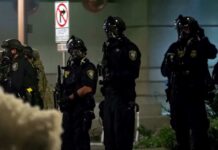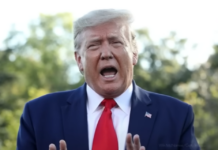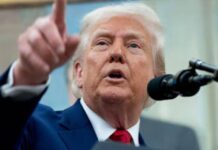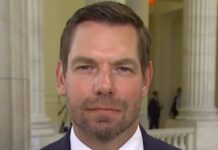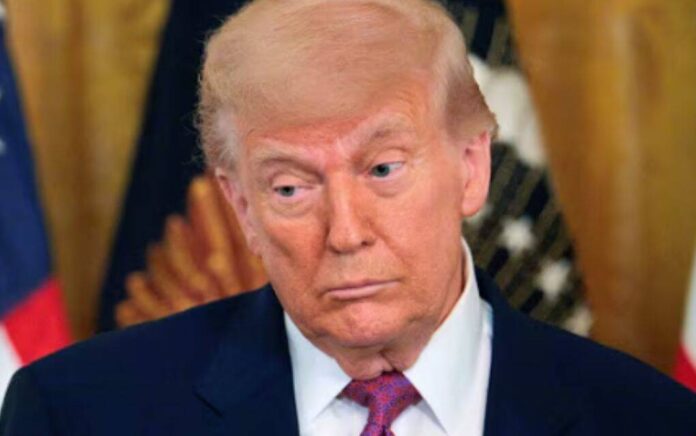
President Trump has been busy signing executive orders. Many are getting challenged by the Judicial branch.
Now a federal judge has handed the Trump admin a court loss that has left jaws on the floor.
Trump’s Election Integrity Push Blocked by Federal Judge
President Donald Trump’s move to strengthen election integrity through an executive order mandating proof of citizenship for federal elections hit a roadblock on Friday. A federal judge in Massachusetts, appointed by former President Barack Obama, issued a ruling that temporarily halts the order, siding with states challenging its implementation. The decision has sparked fresh debate over the balance between securing elections and the practical burdens placed on state governments.
Judge Denise J. Casper of the U.S. District Court in Massachusetts argued that states have a strong case in their legal challenges to the president’s order. “The Constitution does not grant the President any specific powers over elections,” Casper wrote in her ruling, emphasizing that election oversight traditionally falls to the states. Her decision casts doubt on the immediate enforceability of Trump’s directive, which aimed to ensure only U.S. citizens participate in federal elections.
The executive order, signed by President Trump in March, was a cornerstone of his administration’s commitment to restoring trust in the electoral process. It requires documentary proof of citizenship for voter registration in federal elections, a measure championed by Republicans as essential to preventing noncitizen voting. The order also directs the attorney general to crack down on election crimes, ensures foreign nationals cannot donate to federal campaigns, and prohibits organizations receiving federal funds from engaging in lobbying activities.
Casper’s ruling highlighted the states’ concerns about the logistical challenges of implementing the new requirements. She noted that the changes would impose “significant efforts and substantial costs” on states to update their voter registration procedures. This argument resonated with Democratic attorneys general from 19 states who filed a lawsuit in April, contending that the order oversteps federal authority and creates unnecessary hurdles for election administration.
The Trump administration’s executive action also took aim at what it calls “Bidenbucks,” a term referring to the previous administration’s alleged efforts to partner federal agencies with private groups for get-out-the-vote initiatives. By rescinding these measures, Trump’s order seeks to eliminate perceived partisan influences in voter mobilization efforts. The administration argues that such partnerships blurred the lines between neutral election administration and political activism.
Republicans have long pushed for stronger voter verification measures, as evidenced by the GOP-led House passing the Safeguard American Voter Eligibility (SAVE) Act in April. The SAVE Act mirrors the executive order’s requirement for documentary proof of citizenship, a policy Republicans say is critical to maintaining public confidence in elections. Voting by noncitizens in federal elections is already illegal, carrying penalties like felony charges and deportation, but supporters of the SAVE Act argue that additional safeguards are necessary to deter potential violations.
Trump’s order also addresses mail-in voting, a practice the president has criticized as vulnerable to fraud, though he has softened his stance in light of its widespread use among voters, including many Republicans. The order mandates that all ballots for federal elections be received by Election Day, a move intended to streamline the voting process and reduce disputes over late-arriving ballots. This provision has drawn opposition from states that argue it restricts voter access.
The executive order further calls for enhanced cooperation between states and federal agencies to maintain accurate voter rolls. It threatens to withhold federal funding from states that fail to comply with these directives, a provision that has drawn sharp criticism from opponents. The order emphasizes that the U.S. has failed “to enforce basic and necessary election protections,” a point Trump has repeatedly made on the campaign trail and in public statements.
Democratic attorneys general have pushed back hard against the order, particularly its proof-of-citizenship requirement and the Election Day ballot deadline. Their April lawsuit argues that these measures infringe on states’ rights to manage their own election processes and could disproportionately affect certain voter groups.
Judge Casper’s ruling also addressed the issue of citizenship verification directly. “There is no dispute (nor could there be) that U.S. citizenship is required to vote in federal elections and the federal voter registration forms require attestation of citizenship,” she wrote. However, she sided with the states’ argument that implementing new documentation requirements would strain their resources and complicate voter registration processes.
The executive order’s focus on election integrity followed a long Republican effort to address public concerns about the fairness of elections. Supporters argue that measures like the SAVE Act and Trump’s directive are common-sense reforms to prevent rare but serious instances of voter fraud. Critics, however, see these efforts as attempts to suppress voter turnout under the guise of security.
President Trump’s March executive action was a proactive step, bypassing congressional gridlock to implement changes Republicans have long sought. By issuing the order, the administration signaled its determination to act decisively on election reform, even as the SAVE Act awaited further legislative progress. The order also strengthens the Election Assistance Commission, aiming to improve federal support for state election officials.
The legal fight over Trump’s executive order is far from over, with the Massachusetts ruling likely to be appealed. For now, the decision represents a setback for the administration’s aggressive push to reshape how federal elections are conducted.


